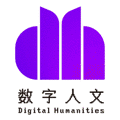您正在访问旧版存档页面。This is the old version archive of our site.
DH国外最新动态(2020年8月-9月)
整理者:尚闻一 ;转载来源:公众号 DH数字人文

整理人:尚闻一 / 美国伊利诺伊大学厄巴纳香槟校区信息科学学院博士生
01
2020年12月12日,欧洲数字人文协会European association for digital humanities(EADH)将举办The 4th Joint SIGHUM Workshop on Computational Linguistics for Cultural Heritage, Social Sciences, Humanities and Literature,将与COLING2020 (Conference on Computational Linguistics)一同举办:
https://eadh.org/news/2020/06/23/cfp-latech-clfl-2020

02
美国伊利诺伊大学厄巴纳香槟校区(UIUC)的Ted Underwood教授(Professor of English and Information Sciences)发布了秋季学期的课程:History and Theory of Digital Humanities,偏重数字人文的人文一侧:
https://www.dropbox.com/s/vngyjl5kkl8f3qh/IS563DHOsyllabus.pdf?dl=0
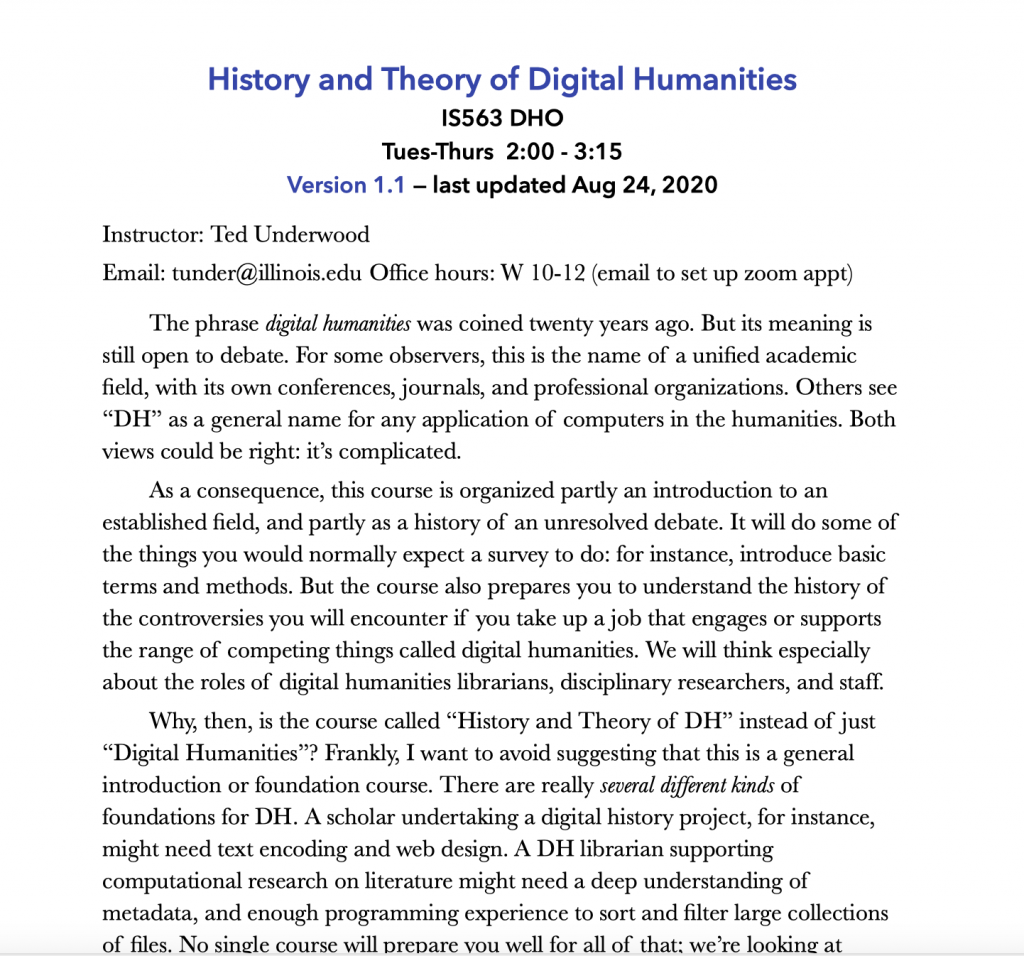
03
美国哥伦比亚大学的Jonathan Reeve(PhD candidate of comparative literary analysis)发布了秋季学期的课程:Introduction to Computational Literary Analysis,介绍基本的数字方法:
http://icla2020b.jonreeve.com/
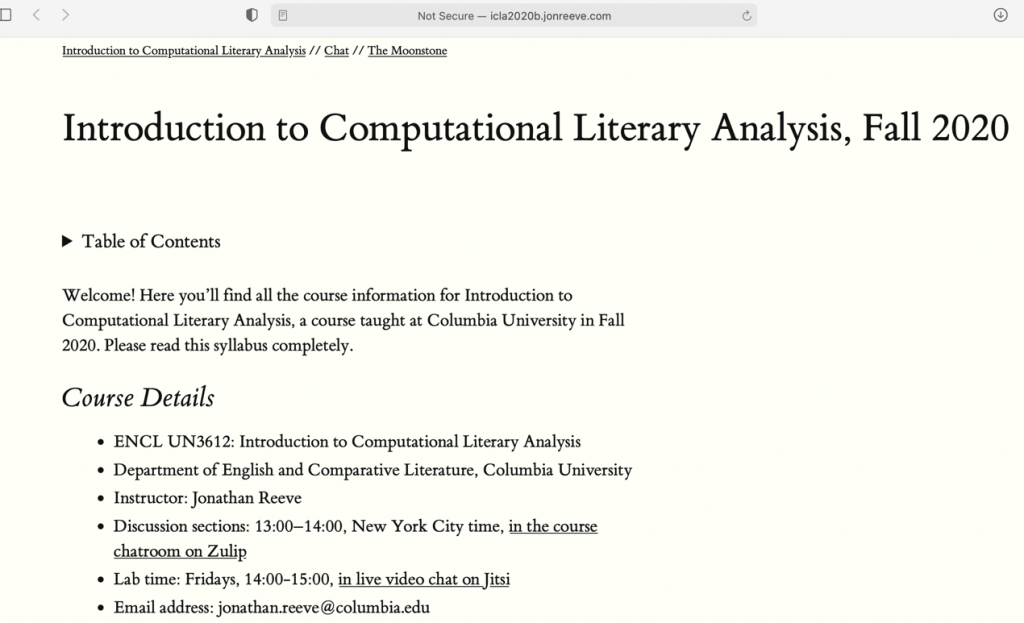
04
美国伊利诺伊州的Northwestern University 的Laura Nelson(Assistant Professor of Sociology)在2020 年秋天学期发布了Analyzing Complex Digitized Data的课程:
“This course is NOT a computer science course. It is not even a course on computer programming. No prior programming experience is required or assumed. It is primarily a social science and humanities course, with an eye toward digital technologies. We will not have computers analyze data or cultural material for us. Instead, we will harness the superior ability for computers to count and extract patterns from complex data and cultural material, and use this output to enhance our own critical thinking and interpretive analyses.”
https://drive.google.com/file/d/1iGE4pVHrdxEqRu3SdDo2aUnkjBR1Zh6A/view

05
美国宾夕法尼亚州的私立研究型大学Lehigh University的Amardeep Singh(Professor of English and Director of Graduate Studies)发布了秋季学期的课程Decolonizing (Digital) Humanities,探讨数字人文与非殖民化理论:
http://www.electrostani.com/2020/08/fall-teaching-decolonizing-digital.html
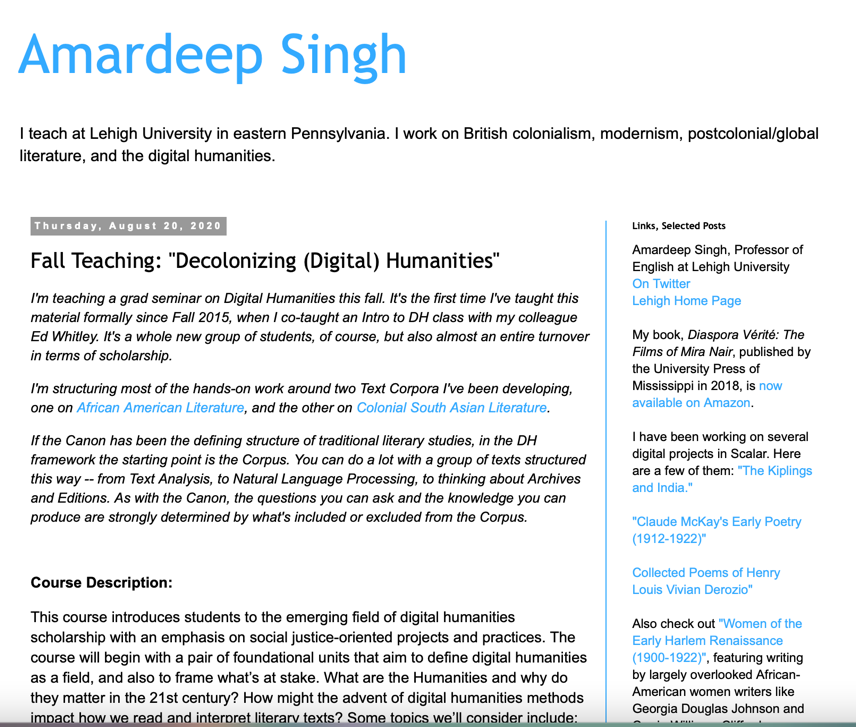
06
2020年8月13日,美国加州大学伯克利校区信息科学学院助理教授David Bamman团队的BookNLP Project获得了funding from the National Endowment for Humanities (NEH)将其目前适用于英语的BookNLP Project进行德语、日语、俄语和西班牙语的跨语言扩展。这一自然语言处理项目主要功能包括:
- Part-of-speech tagging (Stanford)
- Dependency parsing (MaltParser)
- Named entity recognition (Stanford)
- Character name clustering (e.g., “Tom”, “Tom Sawyer”, “Mr. Sawyer”, “Thomas Sawyer” -> TOM_SAWYER)
- Quotation speaker identification
- Pronominal coreference resolution
- Supersense tagging (e.g., “animal”, “artifact”, “body”, “cognition”, etc.)
https://www.ischool.berkeley.edu/news/2020/david-bamman-wins-national-endowment-humanities-grant
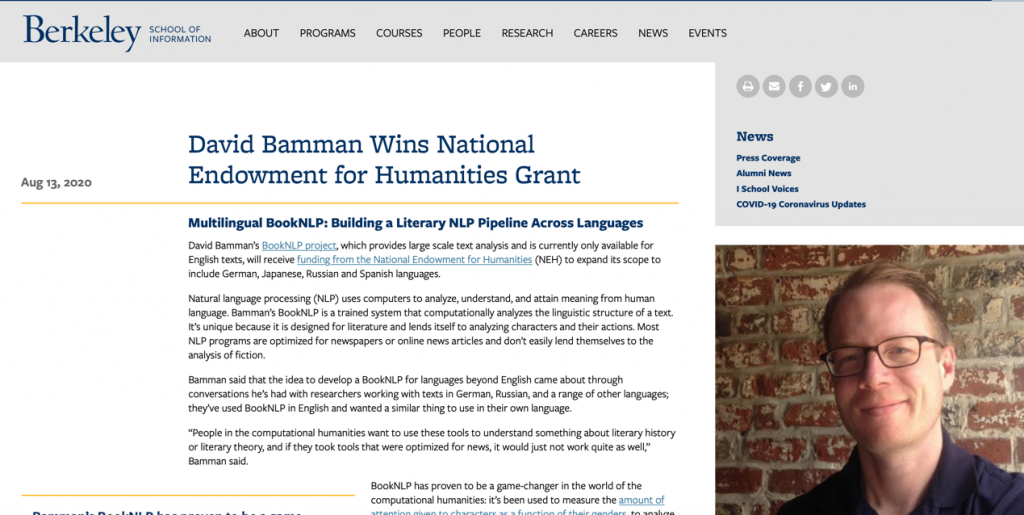
07
2020年9月17日-2021年4月22日,以“Spectrums of DH”为主题,加拿大麦吉尔大学将举办一系列数字人文讲座,演讲者包括Roopika Risam,Quinn Dombrowski,Constance Crompton,Leonardo Flores,Andrew Piper,Astrid Ensslin,Alex Gil。

08
2020年9月23日,德国马克斯·普朗克科学史所(Max Planck Institute for the History of Science)举办线上工作坊介绍RISE & SHINE项目,用于人文研究中的资源传播与数据分析。
https://www.mpiwg-berlin.mpg.de/event/rise-shine-tool-developers-workshop
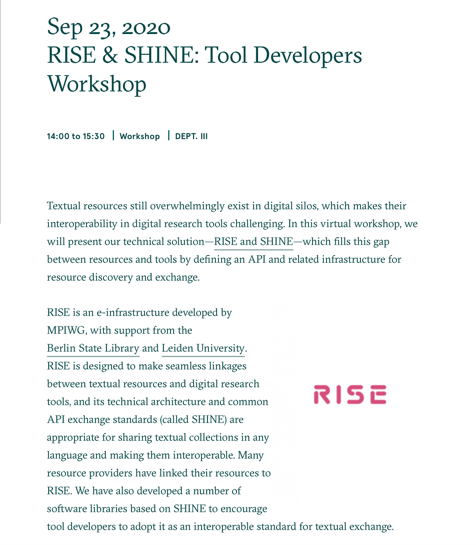
09
加拿大安大略省Southern Methodist University英文系助理教授Emma Annette Wilson在2020年出版了Digital Humanities For Librarians (Rowman & Littlefield Publishers; Illustrated edition, January 15, 2020),综述了数字人文对于图书馆员的应用,覆盖了多种技术,进行了理论层面的探讨,也提供了方法上的指导与帮助。https://rowman.com/ISBN/9781538116463/Digital-Humanities-for-Librarians

ABOUT THE AUTHOR
Dr. Emma Annette Wilson holds a BA and M.Phil. in English from the University of Cambridge, a Ph.D. in Renaissance literature and logic from the University of St. Andrews, and an MLIS from the University of Western Ontario. As Digital Scholarship Librarian, by engaging in extensive outreach, consultation, and project management, she grew the Digital Humanities Center at the University of Alabama Libraries from having 5 to over 140 projects, as well as establishing an annual Digital Humanities conference, Digitorium, which attracted delegates from all over the world, a number of whom contribute to the digital component of this textbook. Dr. Wilson used her experience to write Digital Humanities For Librarians to help and to inspire others in the field to kick-start and accelerate sustainable digital humanities programs at their own institutions. She currently works as Assistant Professor at Southern Methodist University.
ABOUT THE BOOK
Some librarians are born to digital humanities; some aspire to digital humanities; and some have digital humanities thrust upon them. Digital Humanities For Librarians is a one-stop resource for librarians and LIS students working in this growing new area of academic librarianship. The book begins by introducing digital humanities, addressing key questions such as, “What is it?”, “Who does it?”, “How do they do it?”, “Why do they do it?”, and “How can I do it?”. This broad overview is followed by a series of practical chapters answering those questions with step-by-step approaches to both the digital and the human elements of digital humanities librarianship.
Digital Humanities For Librarians covers a wide range of technologies currently used in the field, from creating digital exhibits, archives, and databases, to digital mapping, text encoding, and computational text analysis (big data for the humanities). However, the book never loses sight of the all-important human component to digital humanities work, and culminates in a series of chapters on management and personnel strategies in this area. These chapters walk readers through approaches to project management, effective collaboration, outreach, the reference interview for digital humanities, sustainability, and data management, making this a valuable resource for administrators as well as librarians directly involved in digital humanities work.
There is also a consideration of budgeting questions, including strategies for supporting digital humanities work on a shoestring.
Special features include:
Case studies of a wide range of projects and management issues
Digital instructional documents guiding readers through specific digital technologies and techniques
An accompanying website featuring digital humanities tools and resources and digital interviews with librarians and scholars leading the way in digital humanities work across North America, from a range of larger and smaller institutions
Whether you are a librarian primarily working in digital humanities for the first time, a student hoping to do so, or a librarian in a cognate area newly-charged with these responsibilities, Digital Humanities For Librarians will be with you every step of the way, drawing on the author’s experiences and those of a network of librarians and scholars to give you the practical support and guidance needed to bring your digital humanities initiatives to life.
校对 | 肖爽
美编 | 徐璇
转自公众号:DH数字人文(ID:thudh2020),转载请联系授权。
